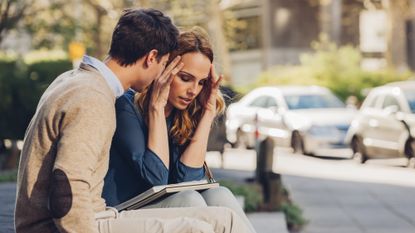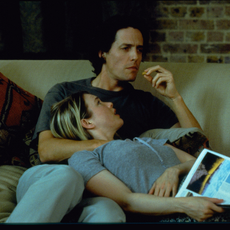Most men think women are overreacting about harassment, according to this survey
Really?

Really?
From the editors of HelloGiggles
Words – Karen Fratti
Most men believe women are overreacting to harassment online, according to a recent survey done by the Pew Research Centre. 64 percent of male respondents believe that people take content online too seriously.
The researchers found that one out of five people have been harassed seriously online, whether in the form of physical threats, stalking, sexual harassment, or just prolonged bullying.
Overall, men are harassed more online (44 percent as opposed to 37 percent of women). So a good portion of people are harassed online, but more women are sexually harassed. Half of women between the ages of 18 and 29 have received threatening, sexually explicit content, which is twice the rate for men.
If men aren’t as worried as women are about harassment, they might feel differently if they weren’t just being trolled in a Reddit forum about Game of Thrones fan theories and were instead faced with rape threats or unsolicited dick pics every time they open their DMs. (For the record, Pew doesn’t really delve into this.)
Marie Claire Newsletter
Celebrity news, beauty, fashion advice, and fascinating features, delivered straight to your inbox!
The nature of the harassment, though, could have to do with how 'worried' the survey respondents are. There’s a slight difference between someone calling you derogatory names or ranting about your politics long after you’ve tried to block them, and being told that a group of men should gang rape you or being sent GIFs of a woman giving a blow job because you tweeted about feminism. (This happens.)
Which is why it’s sort of sad that men were more likely to say that it’s important for people to speak freely online (56 percent of men said so, as opposed to 36 percent of women). 63 percent of women said that it was more important to feel welcome and safe in online spaces. Only 43 percent of men agreed.
Even more disturbing is that a whopping 32 percent of people have no idea how law enforcement addresses online harassment. For people who have been harassed, 55 percent believe authorities don’t do enough. People who have not been harassed believed law enforcement handles online harassment just fine. This does not bode well for women online.
What all of this data shows is that we need a little more awareness about the nature and effects of online harassment, especially as it’s addressed towards women. If men aren’t being sexually harassed online, they don’t seem to be very worried about it. And they certainly won’t help women change how law enforcement deals with online abuse (because they don’t, really).
Cyber bullying and harassment is serious. Just because it hasn’t happened to you, doesn’t mean it’s not dangerous.
The leading destination for fashion, beauty, shopping and finger-on-the-pulse views on the latest issues. Marie Claire's travel content helps you delight in discovering new destinations around the globe, offering a unique – and sometimes unchartered – travel experience. From new hotel openings to the destinations tipped to take over our travel calendars, this iconic name has it covered.
-
 Taylor Swift has broken her silence on the meaning of new track ‘Clara Bow’
Taylor Swift has broken her silence on the meaning of new track ‘Clara Bow’By Jenny Proudfoot
-
 George, Charlotte and Louis are learning "new home rules" to help Princess Kate's recovery
George, Charlotte and Louis are learning "new home rules" to help Princess Kate's recoveryBy Jenny Proudfoot
-
 Hugh Grant just seemed to confirm a huge plot twist for Bridget Jones
Hugh Grant just seemed to confirm a huge plot twist for Bridget JonesGasp.
By Jadie Troy-Pryde